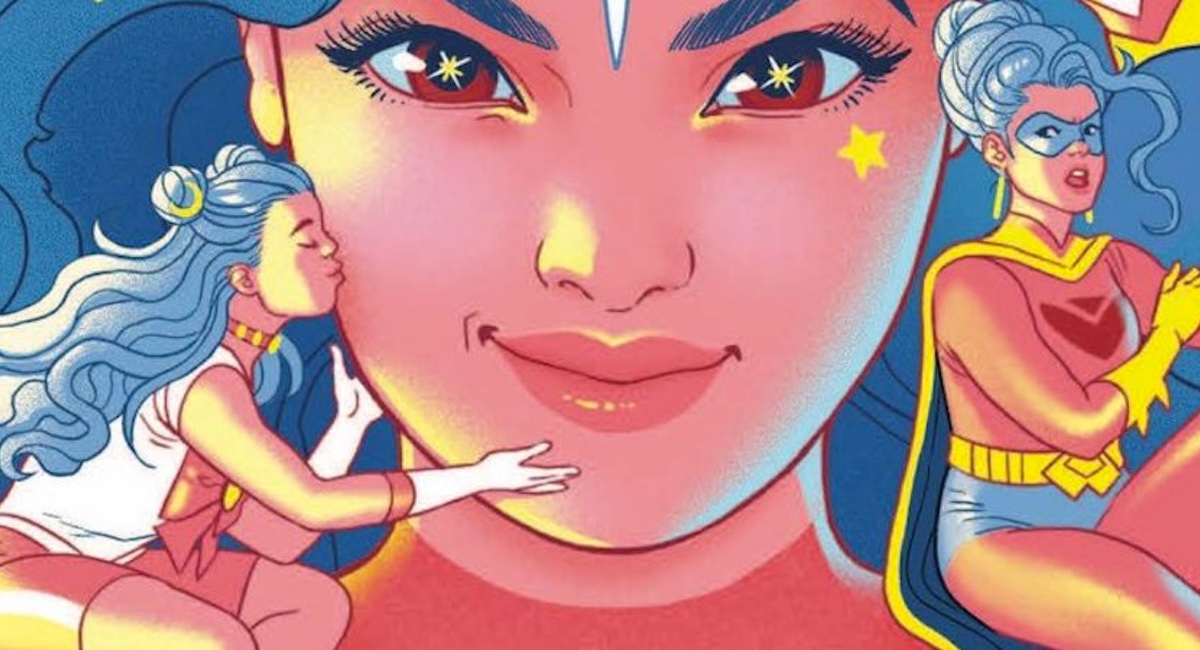Review: Geek Girls Don’t Cry Will Restore Your Faith in Geek Humanity
4 out of 5 comic book heroines.


The intersection of fandom and mental health can be tricky. Sometimes, fan culture is toxic. Other times, it’s a testament to community. I am happy to report that Andrea Towers’s Geek Girls Don’t Cry is in the latter camp, a soaring celebration of the healing power of female characters in fiction. Towers’s approach to analyzing the lessons we can take away from our favorite heroines, from Storm to Hermione to Wonder Woman, is helpful for those of us who look to fictional characters for help and courage.
The book is split into five sections: Overcoming Trauma, Overcoming Grief, Overcoming Adversity, Overcoming Depression, and Overcoming Isolation; she ends each section with an interview with an inspirational geek won from our own universe, including former TMS writer Sam Maggs.
Towers recognizes that many of us will never be superheroes or dystopian heroes (well, the latter looks more and more likely), but points out the lessons we can take away from these women despite their fantastical circumstances. While their situations might be fictional, their struggles might not be.
In one of the first sections, Towers analyzes Dana Scully, an inspiration to women in STEM everywhere. She talks about Scully’s traumas and the key lesson we can take away from them: It’s okay to get help for our trauma and pain from those we trust. Towers writes about seeking help from trusted people in our lives and developing healthy coping mechanisms, citing an episode in which Scully encounters a support group of women who’ve faced alien abductions, who help Scully realize she’s not going through things alone.
The book is filled with interviews from academics and mental health professionals. In one conversation with Dr. Andera Letamendi, Towers poses a question some of you might have yourselves: What has been her experience in hearing from people who see themselves represented in the mental health of a fictional character? Letamendi replies:
“I think what’s incredibly helpful and instrumental about fictional characters is that they do provide a very safe and welcoming space to create dialogue and to create critical conversations about issues like mental health, resilience, and wellness overall. In particular, the discussions around trauma, around recovery, around adversity, and around isolation are incredibly relevant, and when we witness and experience those kind of narratives in fictional characters that we relate to, we do get a sense of validation.”
This book matters, because for some, it might be the first time they receive validation that they’re in the right for identifying strongly with the journeys of fictional characters. Sometimes, it seems silly to do so, because of the idea that by identifying and living through them, we are somehow dissociating from reality, but there is value in being able to connect via fictional narratives.
Fictional narratives are key to helping develop empathy. When we see those unlike us portrayed with nuance and care onscreen, when we see them as heroes, that helps normalize identities in a way that our society, with levels of privilege and oppression, sometimes does not. Similarly, when we see a character who we identify with portrayed as a hero, or given a nuanced and empathetic narrative, that teaches us self-empathy.
It can be hard in this world to talk about mental health. There is a stigma surrounding it, implying that we need to deal with it quietly and privately and not make a fuss, or even just muscle through without help. A book like Geek Girls Don’t Cry not only normalizes identification and validation through fiction, but validates talking about it and using healthy coping mechanisms to face it not as a solo hero, but with a whole support network.
Towers’s book is charming, but it’s also important, and it’s nice to see geekdom being used as a force for good when Marvel vs. DC rivalries and angry Star Wars discourse dominate the fan news cycles. Check the book out, and be reminded of the healing power of fiction and female heroes.
(image: Sterling Publishing Co.)
Want more stories like this? Become a subscriber and support the site!
—The Mary Sue has a strict comment policy that forbids, but is not limited to, personal insults toward anyone, hate speech, and trolling.—
Have a tip we should know? [email protected]